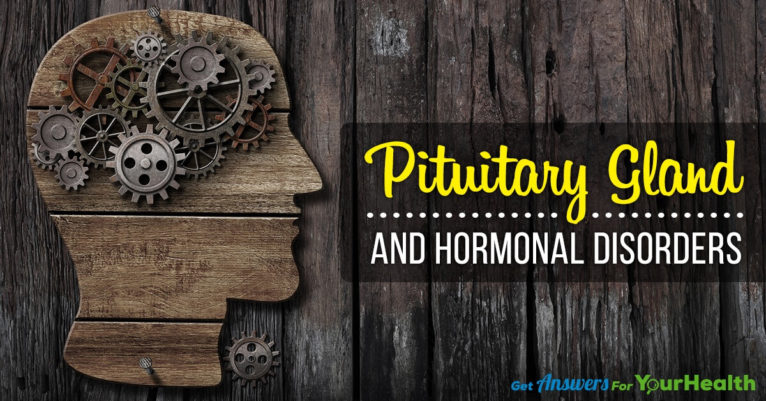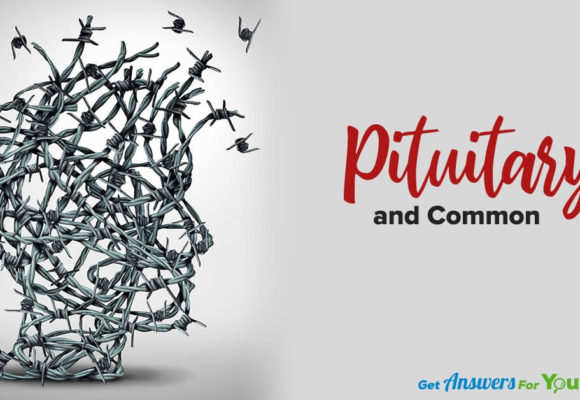1) Grab a FREE copy (Value $14.95) of one of my books Thyroid Symptom Overload
Just pay shipping $7.95 for any US orders. Or, if you want to pay full price plus shipping, order from Amazon :)
2) Take our Thyroid Quiz today and find out what "Thyroid Type" you have
This quiz will help you quickly discover where your symptoms are stemming from.
3) Join Our Thyroid Advocate Membership Site - Natural Thyroid Academy
FREE for a limited time. No credit card required.
4) Work with me and my team privately
Schedule your FREE 15 minute phone consultation and we can find out the best way to help you specifically.
The pituitary gland is said to be the king or the master of all hormonal glands. When you look at the actual gland, it is the size of a pea, but its importance to the body is undeniable. It produces hormones that are responsible for various integral functions throughout the body. If the pituitary gland does not function optimally, it could lead to many dysfunctions in the body.
This means that the gland and the hormones it produces are susceptible to disorders which then cause symptoms. What are they? How do they occur? What can be done to get rid of them? Here are some answers for you.
The Master Gland-Pituitary Gland
The pituitary gland is divided into two parts, the anterior and posterior part. The anterior or the front part of the gland is responsible for the following hormones and functions.
Growth Hormone (GH)
It is the hormone that is in control of the growth among children. It also manages body composition among children and adults. GH is the hormone that ensures maintenance of bone and muscle mass. Fat distribution throughout the body is also under the control of growth hormone.
When quantities of growth hormone are not enough among adults, it leads to increase in body fat, osteoporosis or low bone density, low muscle mass, high cholesterol, and generally poor quality of life.
Thyroid-stimulating hormone (TSH)
It is the pituitary gland that lets the thyroid gland know when it is time to produce and release thyroid hormones. It does this through TSH. These hormones are responsible for energy balance, activity of the nervous system, and keeping the body’s metabolism in control.
Lack of TSH hormone results in feelings of fatigue, weakness, cold and dryness. It also leads to constipation, mood disturbance, memory loss, heavy and painful menstrual cycle, and weight gain. To learn more about your thyroid, join one of our free webinars by registering at www.bit.ly/J2317
Prolactin
The hormone in control of sex hormone levels among men and women, it controls fertility as well as the levels of hormones in testicles among males and ovaries among females. Prolactin is also the hormone that stimulates milk for mothers after childbirth.
If prolactin is not sufficient in the body, a mother is unable to lactate. This means she will not be able to produce milk and feed her baby.
Luteinizing Hormone
Another hormone that deal with sex hormones, LH’s job is to stimulate the release of the egg in women and production of testosterone in men.
Follicle-stimulating hormone (FSH)
FSH is also a sex hormone stimulator. It prompts the ovaries to produce estrogen so that egg development can take place. In men, it helps in the production of sperms. FSH and LH together for optimal functioning of ovaries and testes.
For both FSH and LH, if discrepancies occur, they are observed through decreased libido, irregular periods or no periods, erectile dysfunction, loss of body hair, mood swings, hot flashes, and reduced muscular strength.
Adrenocorticotropin (ACTH)
This hormone is responsible for the proper functioning of the adrenal glands. It is this hormone that alerts the adrenal glands when to produce and release cortisol, the stress hormone. ATCH is also the one that is in control of blood sugars and blood pressure. If this hormone is not functioning properly, it can cause a lot of harm in the body.
Deficiency of ACTH can give rise to low blood sugar as well as blood pressure, body aches, nausea, weakness, vomiting, dizziness and lack of appetite.
Posterior hormones or the ones found at the back of the pituitary gland are the following:
Oxytocin
This is the hormone that causes milk to flow for breastfeeding mothers and it also helps in progressing labor at the time of child birth.
Oxytocin is generally not present if prolactin isn’t there in the body, which leads to no production of milk.
Antidiuretic hormone (ADH)
Water is balanced in the body through this hormone. It is also known as the vasopressin, as it makes sure that water amount is properly maintained and balanced. It does not let all the water to get lost through the urine. If this hormone is deficient in the body, it could cause too frequent urination and increased thirst for water.
Some Common Pituitary Gland Hormonal Disorders
The most common problem that pituitary gland faces is pituitary tumors. They are pretty common among adults and are almost always benign. Cancerous tumors of the pituitary gland are highly rare.
The tumors are further divided into two kinds, secretory and non-secretory tumors. They can both be problematic if they grow too large as they can interfere with normal functioning of the gland. Here are all the problems patients face when they have pituitary tumors:
- Hyposecretion: This is the condition when the large tumor blocks proper secretion of the pituitary gland hormones. When there is too little hormone, this can cause lots of symptoms elsewhere in the body. The problem can also occur due to some kind of radiation or surgery of the pituitary gland.
- Hypersecretion: Some pituitary tumors can lead to excessive production of hormones. This causes hypersecretion, which can lead to many other dysfunctions in the body.
- Tumor mass effects: If tumors in the pituitary gland continue to increase in size, they can lead to not only blockage, but also headaches, vision issues and other health conditions that can sometimes be very dangerous if not treated in time. These tumors are generally either surgically removed, killed off with radiation, or slowly disintegrated through the use of medication. They can lead to hormonal imbalance in the body too. If you feel that you have signs or symptoms that indicate problems with your pituitary gland, then get in touch with your medical doctor.
Your doctor will usually order a MRI or CAT scan to see if there are tumors. Blood work can also be helpful to see what kind of hormonal imbalance you are going through.
References
- http://www.hormone.org/diseases-and-conditions/pituitary
- https://pituitary.org/knowledge-base/disorders
- https://www.empoweryourhealth.org/endocrine-conditions/pituitary








